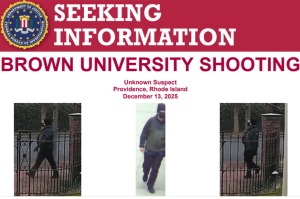By Any Means Unnecessary?
Last month's stem cell research breakthrough garnered the praise of pro-lifers across the nation. Although the media's spotlight on the news has since dimmed, certainly the effort continues to push forward stem cell solutions that are both effective and ethical.
Also ongoing, however, are efforts that seek solutions of the former type and not the latter.
Unlike the controversial technique used by embryonic stem cell researchers, the breakthrough stem cell method does not require the destruction of human embryos but uses a technique called "direct programming," in which genes added to the skins cells reprogram the chromosomes and revert the cells back to an embryonic state. Essentially, the reprogrammed cell is positioned to act like an embryonic stem cell and turn into one of many cell types of the human body that could be used to treat debilitating diseases.
"Today's announcement is just one more indication that our current policy in relying only on adult stem cells is working," expressed Republican presidential hopeful Fred Thompson in a statement released Nov. 20.
Despite the latest advance, however, the ethical debate over stem cells wages on.
Sen. Tom Harkin (D-Iowa), a sponsor of past bills that attempted to extend federal funding for embryonic stem cell research, has indicated his continued to commitment to that cause. Even James Thomson, the stem-cell pioneer whose lab set the stage for one of the teams behind the latest breakthrough, supports continued research on embryonic cells. Notably, however, Thomson told reporters that the successfully reprogrammed cells would, over time, replace embryonic stem cells in research – and he is glad of it, because he had moral qualms.
Most notably, Professor Ian Wilmut, famous for his role in cloning Dolly the sheep, has abandoned his plans to clone human beings and insisted that adult cell reprogramming "represents the future for stem cell research."
"I decided a few weeks ago not to pursue nuclear transfer," said Wilmut in a Nov. 16 report by The Telegraph of London.
The latest developments should serve as reminders in today's society that the quest to save lives does not have to come at the cost of others. "By any means necessary" should not be the motto of any researcher, no matter how noble their intentions may be.
That is especially true when those means result in the destruction of lives – potential or otherwise.
Furthermore, there have been 73 breakthroughs for adult and cord blood research, which have led to therapies for many chronic illnesses – including ovarian and breast cancer, Juvenile Diabetes, Parkinson's Disease, and Sickle Cell Anemia – without the presence of yellow tape.
Meanwhile, there are still no embryonic stem cell breakthroughs.
Is it really worth it to risk crossing the ethical line for solutions that can be derived elsewhere?
When it comes to our journey toward God, there can only be one way – through Jesus Christ.
When it comes to other matters, such as stem cell research, there is not just one. There just simply is not. So why tread on what some may regard as "holy ground?" Because you, yourself, do not regard it as holy?
In the same way that we hold people to be "innocent until proven guilty," we should always stand on the side of life or at least lean in that direction.
If it turns out that the innocent has been condemned, on whose hands would that blood be?



























